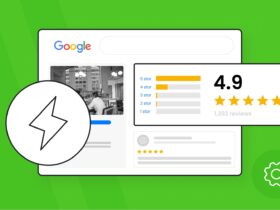Hotel management systems, also known as property management systems (PMS), are software programs that help hoteliers manage various aspects of their business, such as reservations, guest information, room inventory, and billing. These systems can range from basic, standalone software programs to advanced, integrated solutions that include features like artificial intelligence (AI) and machine learning (ML).
- One of the main benefits of a hotel management system is the ability to streamline and automate many of the tasks associated with running a hotel. For example, a PMS can automatically update room availability, generate invoices and reports, and manage guest information. This can save hoteliers a significant amount of time and effort, allowing them to focus on other aspects of their business, such as customer service and marketing.
- Another benefit of hotel management systems is the ability to centralize and manage all aspects of a hotel’s operations in one place. This can include front-desk operations, housekeeping, and maintenance, as well as financial and accounting functions. This allows hoteliers to have a complete, real-time view of their business and to make data-driven decisions.
- A hotel management system can also provide a better customer experience for guests. Many PMSs come with a user-friendly booking engine that allows guests to easily search for and book rooms online. Additionally, some systems offer mobile check-in and check-out, which can save guests time and make they stay more convenient.
- One of the most powerful features of hotel management systems is their ability to use AI and machine learning. For example, Aiosell hotel management system uses AI to predict guest behaviour and preferences, allowing hoteliers to offer personalized, relevant recommendations and services. AI can also be used to optimize room pricing, maximizing revenue and occupancy.
- Another benefit of a hotel management system is that it can help hoteliers increase their revenue. For example, by using data and analytics, a PMS can identify patterns and trends in customer behaviour and preferences, allowing hoteliers to develop more effective marketing strategies.
- One of the key benefits of a hotel management system is improved guest satisfaction. A PMS can help hoteliers provide a more personalized, seamless experience for guests. For example, many PMSs come with a guest self-service portal where guests can view their reservation details, check in and check-out online, and request additional services such as housekeeping or room upgrades. Additionally, some systems offer mobile keyless entry, allowing guests to use their smartphones as a room key, which can save guests time and improve the check-in process.
- Another benefit of hotel management systems is the ability to manage inventory effectively. A PMS can help hoteliers keep track of room availability and pricing, and can also be used to manage other assets such as meeting rooms and event spaces. This allows hoteliers to optimize room pricing and inventory, maximizing revenue and occupancy. Furthermore, some PMSs have a yield management feature, which helps hoteliers adjust the room rate according to demand and seasonality.
- Hotel management systems also provide valuable insights and analytics. By collecting data on guest behaviour and preferences, a PMS can help hoteliers identify patterns and trends in customer behaviour. This information can be used to develop more effective marketing strategies and to make data-driven decisions. Additionally, hotel management systems can provide detailed reports on occupancy rates, revenue, and other key performance indicators, allowing hoteliers to track their business performance and make adjustments as needed.
- Additionally, a hotel management system can help hoteliers improve operational efficiency. By automating many tasks, a PMS can help hoteliers reduce labour costs and improve efficiency. For instance, many PMSs have an automated billing system, which can help hoteliers process invoices and payments more quickly and accurately. Furthermore, some PMSs come with a housekeeping and maintenance management feature, which allows hoteliers to manage and schedule housekeeping and maintenance tasks more efficiently.
- Moreover, hotel management systems can also help hoteliers to stay in compliance with regulations. Many PMSs have built-in security features that can help hoteliers protect guest data and comply with data privacy regulations. Additionally, some systems come with a security management feature that can help hoteliers manage and monitor access to sensitive areas of the hotel.
- Lastly, hotel management systems can also help hoteliers improve their online presence. Many PMSs come with a website and booking engine, which can help hoteliers attract more online bookings. Additionally, some systems offer integrated online reputation management tools, which can help hoteliers monitor and respond to online reviews and manage their online reputation.
- Another benefit of hotel management systems is the ability to increase productivity. A PMS can automate many repetitive tasks such as reservations, billing, and inventory management, allowing hotel staff to focus on more important tasks such as customer service and sales. Additionally, many PMSs have a feature for task management, which can help hoteliers keep track of tasks and assign them to the appropriate staff member, further increasing productivity.
- One more benefit is that a hotel management system can help hoteliers save money. By automating many tasks, a PMS can help hoteliers reduce labour costs and increase efficiency. Additionally, by streamlining and simplifying operations, a PMS can help hoteliers reduce costs associated with errors and inefficiencies. Furthermore, by providing detailed analytics and reports, a PMS can help hoteliers identify areas of the business that are not performing well and take steps to improve them.
- In addition, a hotel management system can also help hoteliers to improve communication and collaboration. Many PMSs have a feature for staff communication, which can help hoteliers keep track of staff activities and assign tasks. Additionally, many PMSs have a feature for staff scheduling, which can help hoteliers manage staff schedules more effectively. Furthermore, many PMSs have a feature for document management, which can help hoteliers store and share important documents, such as contracts and invoices, more easily.
Additionally, by optimizing room pricing and inventory, a PMS can help hoteliers increase occupancy rates and revenue. Moreover, a hotel management system can also help hoteliers reduce costs. For example, by automating many tasks, a PMS can help hoteliers reduce labour costs. Additionally, by streamlining and simplifying operations, a PMS can help hoteliers reduce costs associated with errors and inefficiencies.
In conclusion, hotel management systems are an essential tool for hoteliers to manage their business. They can streamline and automate tasks, centralize and manage operations, provide a better customer experience, and use AI and machine learning to increase revenue and reduce costs. Aiosellis one of the best software for hotel management that provides all these features and more to help hoteliers run their businesses more efficiently and effectively.






